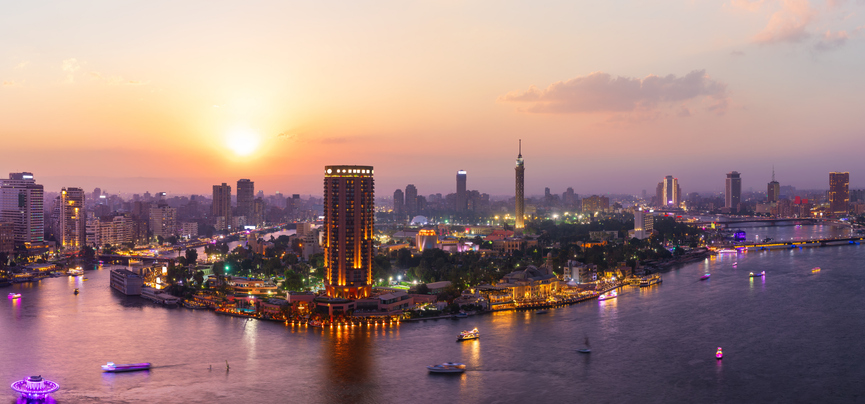Egypt Secures $1.2 Billion IMF Disbursement Amid Economic Challenges
Egypt is set to reinforce its financial reserves with a $1.2 billion disbursement from the International Monetary Fund (IMF) in January 2025. This installment is part of an $8 billion Extended Fund Facility (EFF) program designed to help stabilize Egypt’s economy, which has been battered by high inflation, foreign currency shortages, and declining revenue from key sectors such as the Suez Canal.
Finance Minister Ahmed Kouchouk expressed confidence in receiving the funds following the IMF’s staff-level agreement during the fourth review of the 46-month program. He noted that the IMF executive board is scheduled to meet in January to finalize the release. Egypt is aiming to secure an additional $3 billion in funding by the end of the fiscal year in June 2025.
Egypt’s Economic Challenges
Egypt’s decision to engage with the IMF stems from mounting economic pressures:
- High Inflation: Inflation rates in Egypt have soared, eroding purchasing power and increasing the cost of living for millions of citizens. The government has implemented monetary tightening measures to combat this issue, but challenges persist.
- Foreign Currency Shortages: The Egyptian pound has faced significant devaluation, making it difficult for the country to import essential goods. The currency shortage has also impacted businesses reliant on foreign trade.
- Declining Revenues: A substantial drop in Suez Canal revenue, attributed to regional tensions and reduced maritime activity, has added to fiscal strain. As one of Egypt’s primary revenue streams, the canal’s performance is pivotal to the national budget.
Despite these challenges, Egypt is actively pursuing financial reforms and securing international support to mitigate the economic fallout.
The $8 Billion IMF Program
The IMF’s $8 billion EFF arrangement, initiated in March 2024, was crafted to address Egypt’s macroeconomic vulnerabilities and provide a framework for structural reforms. This long-term program includes measures aimed at:
- Enhancing fiscal discipline.
- Improving foreign reserve buffers.
- Boosting investor confidence through policy transparency.
- Diversifying revenue sources to reduce reliance on external loans.
The $1.2 billion disbursement in January 2025 marks a critical milestone in the program, ensuring Egypt can meet immediate financial obligations while pursuing long-term reforms.
Egypt’s Fiscal Strategy
Beyond IMF support, Egypt is focusing on generating additional funds through various investment tools. The government plans to raise $3 billion by the end of the fiscal year, with potential bond issuances and other instruments targeting both domestic and international investors.
While specific details of these initiatives remain unclear, experts believe Egypt’s diversified approach reflects a strategic pivot toward financial sustainability. Recent efforts to tap into green bonds and sukuk (Islamic bonds) underscore the country’s intent to appeal to a broader investor base.
Suez Canal and Economic Resilience
The Suez Canal, historically a cornerstone of Egypt’s economy, has faced setbacks due to geopolitical tensions and reduced global trade activity. Over the past year, revenues from the canal declined significantly, highlighting the vulnerability of Egypt’s dependence on this single source of income.
In response, the government is exploring avenues to modernize and expand canal operations, aiming to boost capacity and attract more maritime traffic. These efforts are critical to sustaining the canal’s contribution to national revenue and ensuring economic resilience.
Global and Domestic Implications
The IMF program and Egypt’s broader financial initiatives carry implications for both the domestic economy and the global financial community:
- For Egypt: The $1.2 billion disbursement provides immediate fiscal relief, enabling the government to stabilize its currency and finance critical imports. Long-term reforms under the IMF program aim to create a more diversified and resilient economy.
- For Investors: Egypt’s fiscal strategies, coupled with IMF support, signal a commitment to transparency and stability, potentially attracting foreign direct investment.
- For Emerging Markets: Egypt’s case serves as a precedent for other nations facing similar economic challenges. The success of the IMF program could influence global approaches to financial aid and structural reform.
Related: Burj Khalifa Hits AED 467.1 Million in Sales for 2024: A Beacon of Dubai's Real Estate Brilliance
Looking Ahead
The disbursement in January 2025 is just one piece of a broader economic puzzle for Egypt. As the country navigates fiscal reforms and addresses systemic issues, its ability to execute long-term strategies will be critical.
Analysts are optimistic that Egypt’s efforts to attract foreign investment, coupled with robust international partnerships, could lay the groundwork for sustained recovery. However, challenges such as inflation, currency stabilization, and geopolitical tensions remain key obstacles.
Egypt’s $1.2 billion IMF disbursement marks a pivotal moment in its economic journey, providing essential funds to address immediate challenges while paving the way for long-term stability. With a comprehensive fiscal strategy and support from international institutions, the nation is positioned to overcome its current economic hurdles and re-establish itself as a resilient player in the global economy.









